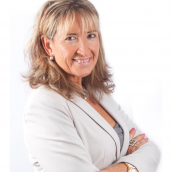Not long ago I read Jordi Querol in his book ‘Reflexiones para envejecer con plenitud’ (Reflections for ageing with plenitude), how he vindicated the value of difference, and rejected that, in a generalised way, all citizens over sixty-five should be included in the same population segment. Jordi spoke of classifying by shared motivations and not by certain dates, alluding to the way of acting, thinking and living this phase of life of the ills (or not) known as seniors.
And this general reflection also and especially applies when it comes to dealing with a stage of women's lives known as the menopause in the broad sense. According to the INE, more than 8 million women are currently in this phase in Spain. If we take these figures to a global level, by the end of 2025, more than one billion women will have gone through it.
What is undeniable is that, increasingly, this reality has led to a market for products aimed at women in this period, especially in the area of personal care and beauty. And beyond the population figures, which are important, we cannot forget, as Ambra Orini of BeatuyMakers mentions, that ‘in beauty alone there is a $600 billion market for women in menopause that is crying out for disruption’.
What is undoubted is that, of increasing way, this reality has ended in a market of products headed to women in this period, very especially in the area of the personal care and the beauty. And further of the figures of population, that are important, can not forget, as it mentions Ambra Orini of BeatuyMakers, that "sólo in beauty there is a market of 600 billion of dollars for women in menopause that asks to cries the disruption".
And that's where we want to go. Because menopause is more than just hot flushes. This period of a woman's life (including pre- and post-menopause) has been typified by a list of more than 20 symptoms, of which the average woman will ‘suffer’ 6 during the whole period. Symptoms that do not always have to be the same, nor will they affect all women in the same way, and most importantly... Not all women will experience them in the same way.
Because emotionally, women face this stage of their lives in a very different way, even with the same symptoms, and this should be taken into account by brands that want to connect with them.
When it comes to managing their menopause, the solutions women are looking for can be divided into 6 similarly sized emotional territories.
To surface these more emotional needs that women seek, Kantar uses our Needscope positioning platform, which allows us to identify and quantify these needs and their expressions.
So, beyond physical and health changes, at this stage of life, a woman may want to feel full of energy, spontaneous or extroverted, like yellow women, or, on the contrary, need to feel more self-confident and empowered like blue women. Brown women focus their emotional positioning on calmness, closeness and nurturing while red women seek to feel strong and unstoppable. Finally, an orange woman has a welcoming, positive experience, and in the opposite quadrant, the purple woman is positioned in empowerment and elegance.
And in this heterogeneous environment, women are asking brands for help: only 3 out of 10 women are satisfied with the lifestyle changes or products they are using to manage menopause, clearly offering an opportunity for new product development and ample room for improvement in terms of support, visibility and services.
Therefore, even having the same symptoms or no, no all the women aspire to feel us of the same form. And the marks and the different agents have to decide which has to be his positioning, how express in terms of communication, of packaging, of messages to cover each one of these more emotional needs.
Because there are so many menopauses like women with win to feel listened and represented by the marks.
